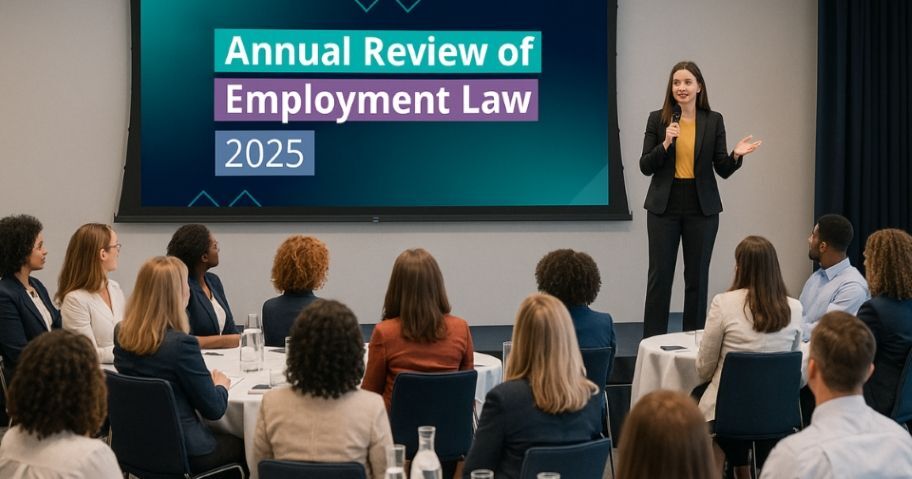
The Bar of Ireland
Orchard Way, Killarney V93Y9W9.
DX: 51010 Killarney
Tel: (087) 4361270
Patrick's legal education is robust, beginning with a BCL Law Degree from University College Cork (2012-2016), followed by an LL.M in Business Law from the same institution (2016-2017), and culminating in a Barrister-at-Law Degree from The Honorable Society of King’s Inns in Dublin (2019-2021). He has extensive experience on the South-West Circuit, handling Civil, Family, and Criminal Law cases, as well as advising the Citizen Advice Service. He has worked as an employment consultant, dealing with workplace investigations and bankruptcy procedures.
Overtime clause valid but claim out of time.
The Complainant stated that he had never received his contract of employment until March 2024, despite repeated requests since he commenced employment in 2018. When the contract was finally provided, he discovered a clause providing for overtime pay at 1.5 times the normal rate for hours worked after 5pm and on Saturdays. He alleged that he had never received overtime pay under this clause and that the Respondent misrepresented his entitlements by failing to provide him with the contract earlier. He argued that the clause was clear and unambiguous, and the Respondent was contractually bound to honour it from May 2018. He further maintained that the late provision of the contract prevented him from asserting his rights sooner. The Complainant sought backdated overtime payments in line with the contractual terms, contending that his employer’s failure to provide the contract amounted to misrepresentation and concealment of his lawful entitlements.
The Respondent argued that the Complainant was never entitled to overtime payments. It acknowledged that his 2018 contract contained a clause providing for overtime pay, but insisted that this clause was inserted in error and did not reflect company practice. The Respondent maintained that neither Skip Drivers nor Driver Supervisors had ever received overtime premiums. Instead, the Complainant’s remuneration package reflected the full scope of his duties, including occasional work outside standard hours. The Respondent emphasised that the Complainant himself had never previously been paid overtime during his employment, nor had he raised the matter until 2024. It provided a sworn affidavit confirming that no comparable employees had received overtime and argued that the clause was a mistake with no contractual effect.
The Adjudicating Officer found that the Complainant’s contract contained a valid and enforceable overtime clause, despite the Respondent’s claim it was included in error. However, the complaint was brought under the Payment of Wages Act 1991, which imposes a strict six-month time limit (extendable to twelve months for reasonable cause). Unlike other statutes, this Act contains no provision to pause time due to alleged misrepresentation. As the Complainant framed his claim as covering several years of unpaid overtime, it was deemed out of time. Had the complaint been limited to a six-month in-time period, the claim could have been considered, and any unpaid overtime would have amounted to unlawful deductions. Accordingly, the complaint was found not well founded and dismissed.
Employers should:
- Ensure that all contracts of employment are carefully reviewed before being issued to staff. Clauses relating to pay, overtime, and hours of work must reflect actual practice. If an error is made, such as the accidental inclusion of an overtime entitlement, it may create legal exposure.
- Give employees signed copies of their contracts at the outset of employment and to retain proof of delivery.
- Keep accurate payroll and attendance records to demonstrate compliance. Where a contractual error is identified, it should be corrected promptly, with clear communication to affected employees.
The full case can be found here.
Continue reading
We help hundreds of people like you understand how the latest changes in employment law impact your business.
Please log in to view the full article.
What you'll get:
- Help understand the ramifications of each important case from NI, GB and Europe
- Ensure your organisation's policies and procedures are fully compliant with NI law
- 24/7 access to all the content in the Legal Island Vault for research case law and HR issues
- Receive free preliminary advice on workplace issues from the employment team
Already a subscriber? Log in now or start a free trial
 Practical Skills for Confronting & Preventing Conflict at Work
Practical Skills for Confronting & Preventing Conflict at Work

